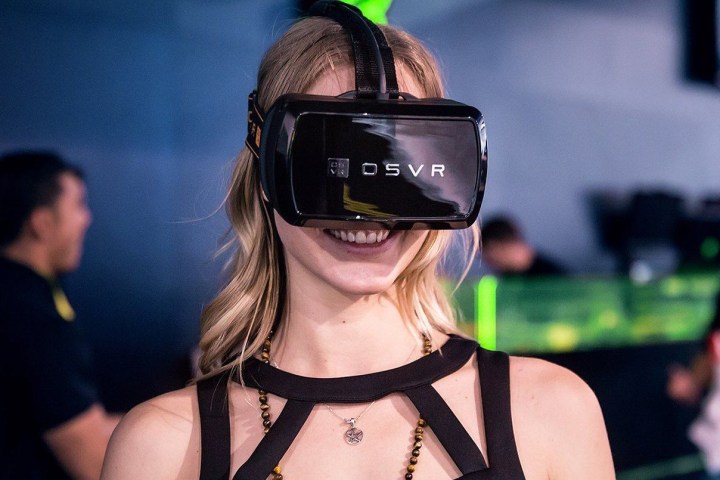
The new upgrade kit applies to HDK version 1.3 and 1.4. It consists of two 1,080 x 1,200, low-persistence OLED screens with a refresh rate of 90Hz that are pre-assembled with matching drive electronics and a mounting plate. The kit also includes a mechanical adapter, and that’s it. Sensics notes that the upgrade process will disable the USB connector located on the HDK unit’s side.
“We are committed to inspiring innovation among the VR developer community, and are thrilled to be making high-quality VR more accessible to all,” said Yuval Boger, CEO of Sensics and co-founder of OSVR. “The OSVR community wanted a way to upgrade the original HDK, and we listened. The HDK 2 upgrade kit gives developers the latest and greatest features at half the cost and is a great example of how OSVR democratizes VR for all.”
The OSVR consortium, co-founded by Razer and Sensics, revealed in June that HDK 2.0 would sport two screens with an overall resolution of 2,160 x 1,200. These screens would have “unique” Image Quality Enhancer (IQE) technology to reduce the screen door effect, and provide VR experiences at up to 90 frames per second. They would even put the open source OSVR HDK on the same visual level as the HTC Vive and Oculus Rift.
However, like the competing headsets, HDK 2.0 requires somewhat hefty PC hardware, including the GeForce GTX 970 or Radeon R9 280 graphics card (or equivalent), an Intel Core i5-4590 processor or equivalent, and 8GB or more of system memory. Other requirements include two USB 2.0 ports, and a compatible HDMI 1.3 video output.
OSVR HDK 2.0 launched last month, costing $200 less than the Oculus Rift and $400 less than the HTC Vive. With the new upgrade kit released on Wednesday, owners of HDK 1.3 and HDK 1.4 can switch out the older screens in less than 20 minutes, according to Sensics.
OSVR now actually has a dedicated store powered by Sensics. Here, customers can purchase the OSVR 2.0 kit, the screen upgrade kit for v1.3 and v1.4, a one-hour consultation with a senior member of the OSVR development team, a nine-sensor wireless controller with haptic feedback, sensor modules, and more. This storefront is also a new platform for VR vendors to display their goods, and a place to gather VR knowledge in general.
Late last month, the OSVR consortium revealed that support for the OSVR platform now exists within WebVR, as well as Unreal Engine v4.12. There’s also now advanced support for OSVR devices inside SteamVR, including distortion correction and direct mode. An OSVR editor is even currently accessible through the Unity Engine menu bar.


